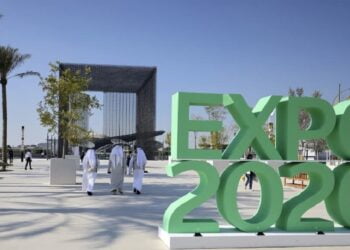The postponement of president selection by Iraqi parliament promises new era of political deadlock following last years’ controversial elections.
The Iraqi Supreme Court stopped a former foreign minister’s presidential campaign yesterday due to fraud charges. Following that, numerous MPs announced they would sanction the Monday vote to President selection, extending the political impasse.
The Iraqi court ruled that Hoshyar Zebari’s nomination could not move forward until he was cleared of corruption accusations stemming from a prior 2016 tenure as finance minister. Zebari is a combat vet and Iraqi Kurdish statesman who has approaches close to western policies.
Zebari is a member of the Kurdish Democratic Party who also have campaign support from of a group of Sunni Muslim legislators. Sadr movement, the forerunner in the latest legislative elections, had also been a prominent Zebari supporter.
Once Zebari appeared as a strong competitor, the charges of corruption reappeared in a curious way. Sadr then seemed to remove his support, claiming in a declaration that any potential president must fulfill the prerequisites before taking the power.
Sadr movement ran in the election founded on the bases of anti-corruption agenda. Sadrist Alliance also announced on Saturday that it boycotts parliamentary session two days later.
Some other political parties and seat-holders in the parliament also announced their decision to boycott the Monday session. Kurdistan Democratic Party also followed the route on Sunday and boycotted the Monday procedure.
Iraqi parliament was meant to elect the new president in a session on Monday. Any candidate securing the majority of two-thirds in the legislative chamber would be the next president for a four-year term.
On Monday, the Iraqi legislative representatives postponed president selection to an unknown time in the future. As such, the cycle of deadlock in selecting president keeps on for an indefinite time.
Iraqi President Selection; Prospect of Local Crisis
Since the American war against Iraq in 2003, the anti-western air has been dominant in in the public society of Iraq. As such, since then, the Shiite political parties, movements and their affiliates comprised the majority in the legislative council.
Hoshyar Zebari has the experience of holding the foreign minister office for long years. He was fired by parliament six years ago for suspected fraud while serving as minister of finance.
Zebari is yet to comments on the recent accusations. He previously disputed the charges, claiming they have political motivations.
Four lawmakers filed a motion with the federal court last week, requesting Zebari’s removal from the presidential contest. The representatives charged him with financial and administrative misconduct that dates back to his practices before 2016.
The Monday parliament session proved disappointing with only 58 representatives, out of 329, present in the chamber. The parliament members kept their vows to boycott the session, with no outstanding candidate reaming for president selection.
The outcome was a setback for Moqtada al-Sadr, a populist leader who came out as forerunner in last year’s election. He had promised to rush through forming an administration that would be able to settle the local and regional challenges for Iraq.
Following each general election, Iraq usually experiences months of political rifts while political parties and movements battle for more positions. Iraqi people are becoming more alienated with the political system, blaming nearly all of their elected officials for corruption.
Sadr movements inclination towards the western policies debilitated its popular influence in recent months. Besides, other Shiite groups sanctioned the cleric due to its unilateral policies against what they describe as the national interests. Sticking with its policies, Sadr might lead Iraq into an even more complicated deadlock.








